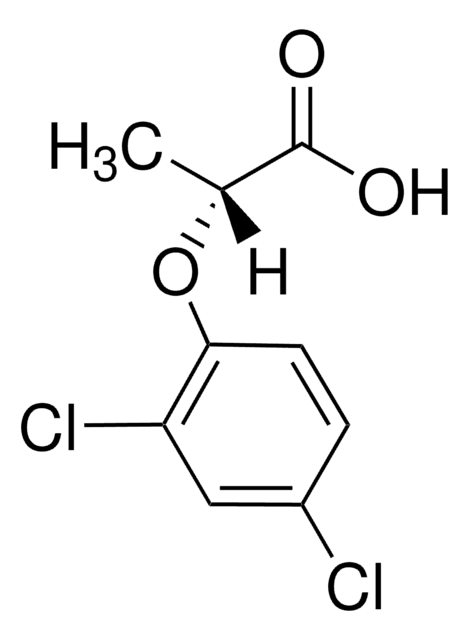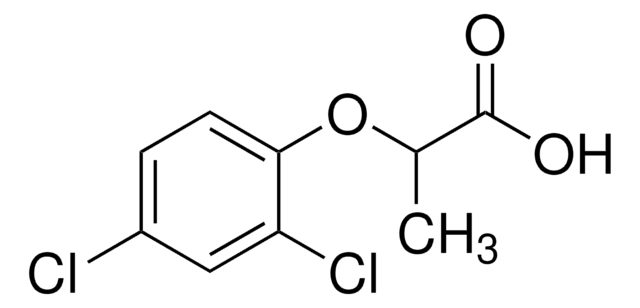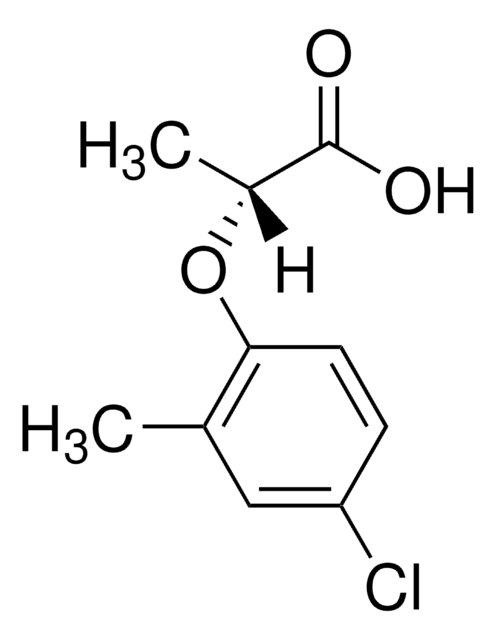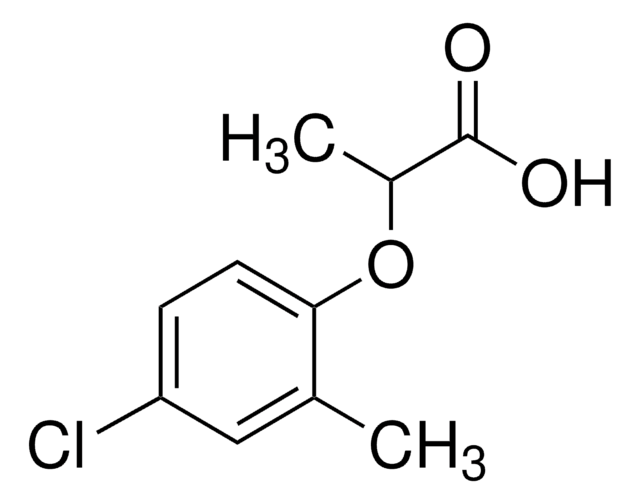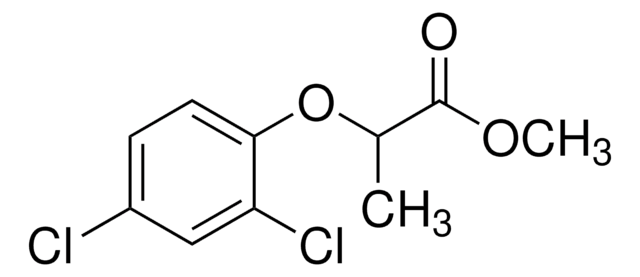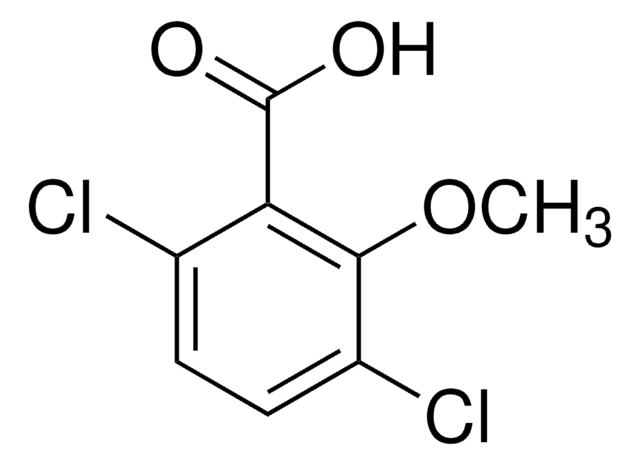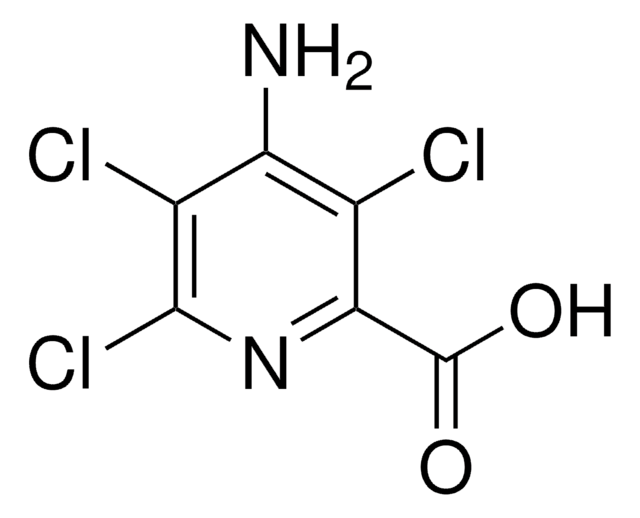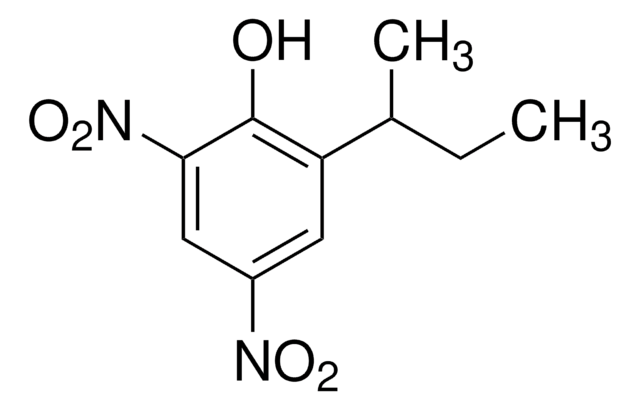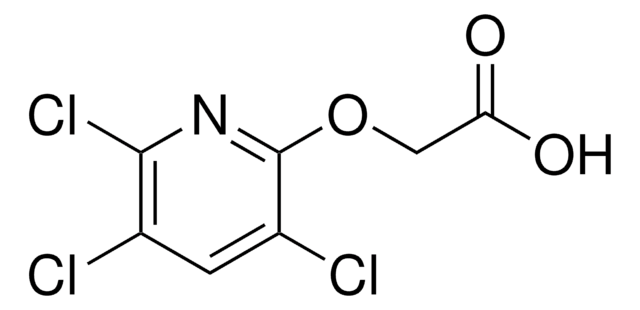45436
Dichlorprop
PESTANAL®, analytical standard
Synonym(s):
2-(2,4-Dichlorophenoxy)propionic acid
About This Item
Recommended Products
grade
analytical standard
Quality Level
product line
PESTANAL®
quality
racemate
shelf life
limited shelf life, expiry date on the label
technique(s)
HPLC: suitable
gas chromatography (GC): suitable
application(s)
agriculture
environmental
format
neat
SMILES string
CC(Oc1ccc(Cl)cc1Cl)C(O)=O
InChI
1S/C9H8Cl2O3/c1-5(9(12)13)14-8-3-2-6(10)4-7(8)11/h2-5H,1H3,(H,12,13)
InChI key
MZHCENGPTKEIGP-UHFFFAOYSA-N
Looking for similar products? Visit Product Comparison Guide
Application
Legal Information
Not finding the right product?
Try our Product Selector Tool.
Signal Word
Danger
Hazard Statements
Precautionary Statements
Hazard Classifications
Acute Tox. 4 Dermal - Acute Tox. 4 Oral - Eye Dam. 1 - Skin Irrit. 2
Storage Class Code
11 - Combustible Solids
WGK
WGK 2
Flash Point(F)
Not applicable
Flash Point(C)
Not applicable
Personal Protective Equipment
Choose from one of the most recent versions:
Certificates of Analysis (COA)
Don't see the Right Version?
If you require a particular version, you can look up a specific certificate by the Lot or Batch number.
Already Own This Product?
Find documentation for the products that you have recently purchased in the Document Library.
Our team of scientists has experience in all areas of research including Life Science, Material Science, Chemical Synthesis, Chromatography, Analytical and many others.
Contact Technical Service